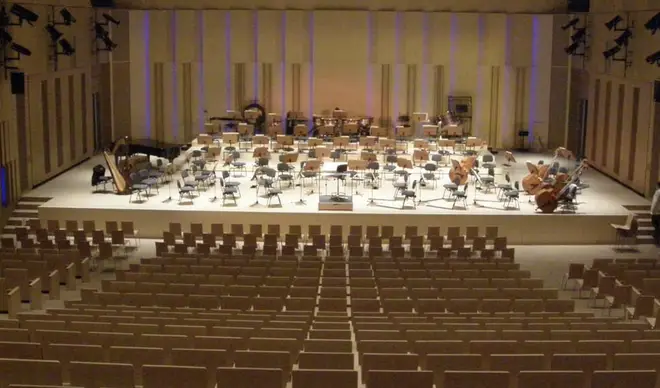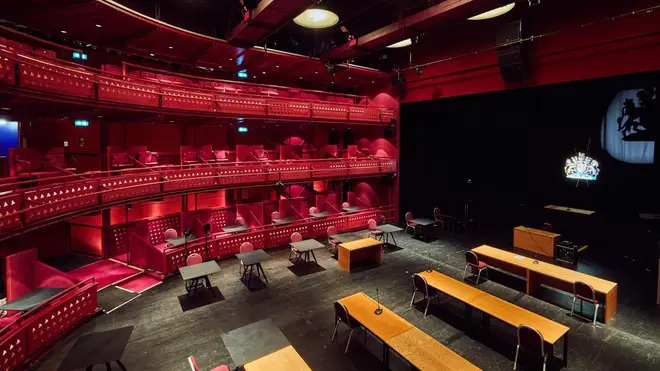On Air Now
Calm Classics with Ritula Shah 10pm - 1am
23 September 2020, 15:35

Arts venues are being taken over as courtrooms. For show trials, perhaps…?
Concert halls and theatres are being transformed into makeshift courts, to clear a backlog of cases that built up during lockdown.
And it’s actually good news for the arts – as these new deals with the Ministry of Justice will help subsidise performances amid the financial devastation of COVID-19.
Salford’s Lowry Theatre is one of a handful of venues doubling up as a ‘Nightingale Court’ to deal with a backlog of 46,000 cases across England and Wales.
The Lowry will play host to three temporary courtrooms, which will hold daytime trials, Monday to Friday. Funds from the daytime will allow the venue to stage shows on evenings and weekends, including Six the Musical and The Gruffalo, as well as opening its galleries again.
Similar deals are happening on the continent. In Poland, the small concert hall of the Świętokrzyska Philharmonic in Kielce, Poland, will be the scene of a drug gang trial. The first meeting of the case, in which 17 are accused of drug trafficking, will be held tomorrow (Thursday 24 September).
Judge Jan Klocek from the District Court said: “Under normal circumstances, we would be able to judge them in court. However, due to the pandemic and the need to keep certain distances, it turned out that the necessary standards were met by the small concert hall of the Świętokrzyska Philharmonic.”
Read more: Madrid opera erupts as audience protests crowding in cheap seats >

Judge Klocek said Poland’s music hall meets court requirements, including a separate ramp for police cars driving the accused, and separate entrances so the accused will not come into contact with each other.
The Lowry, which receives only six percent of its turnover from public money, lost a devastating 95 percent of its income when it shut in March. It managed to furlough most of its 250 staff and received £1.2m from the Arts Council in the summer, but didn’t qualify for many of the government’s emergency grants.
It has now lost £16m, chief exec Julia Fawcett confirmed, describing the court deal as a “crucial lifeline” for the theatre.
“Being able to enter into this partnership with the courts is absolutely key to us being able to begin the engagement with our audiences, to be able to put work back on the stages, to open up our galleries,” Fawcett told the BBC..
“That would not be possible without this partnership at this point in time.”
Read more: Six West End theatres are reopening, but are guaranteed to run at a loss >

Starmer: Arts funding needs to go to smaller theatres
On 28 September, The Lowry will begin to host non-custodial criminal cases as well as civil, family and tribunal hearings.
Other venues doubling up as courtrooms include a York Hilton Hotel and the Jurys Inn in Middlesbrough, on top of other venues to be confirmed in Bristol, Liverpool and Winchester.
Fawcett added that she contacted the Ministry of Justice months ago about the idea. “Although it sounds unlikely at first pass, it seemed to us that the courts have a need for capacity because of social distancing, and we have a desire to get our buildings and programmes open,” she said.
“Taking the two challenges together allows us to begin to see the building reopened.”